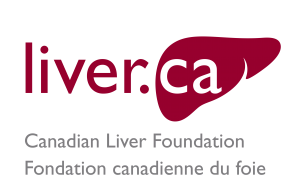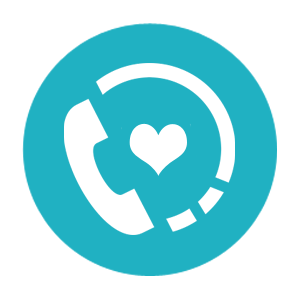For Caregivers

The effects of liver disease are felt by many people, on many levels.
As a caregiver of someone living with liver disease, you may share many of the same emotions your loved one is experiencing: fear, isolation, or even anger. This is why part of our job at the Canadian Liver Foundation is to help you turn those negative emotions into feelings of hope and strength.
To avoid the burnout that is often felt while dealing with an illness at any level, it is important to take care not only of your loved ones, but of yourself as well. The information on this page has been designed specifically with caregivers in mind – from expectations to support programs provided by the Canadian Liver Foundation.
To request more caregiver-specific resources or to learn more about the support available to you, please contact us.
What to Expect
As a family member or a caregiver looking after someone who has liver disease, you may need to play a variety of roles, which often means taking on responsibility for both physical and emotional support.
You can play an essential role in your loved one’s life by lending a hand with the following.
Everyday tasks
- Help with activities of daily living such as feeding, bathing, grooming and dressing.
- Provide support with home chores such as cleaning, cooking/meal preparation and running errands.
- Help your loved one move around the house and outside.
- Manage your loved one’s finances or financially support them.
- Listen and provide emotional support and companionship to your loved one.
- Advocate for your loved one by being their voice.
Medical tasks
- Assist with organizing medications by using a schedule, giving reminders of dose times, keeping track of supply and need of refills. Also, look out for medication-related side effects.
- Be observant for signs and symptoms of worsening liver disease, as well as side effects of medication. Early detection of new symptoms is key to being able to manage them effectively.
- Manage your loved one’s medical records and schedule their medical appointments.
- Provide transportation for your loved one to appointments, family/friend visits, events, shopping, etc.
- Accompany your loved ones to medical appointments and assist them with their understanding of medical information.
- Prepare your loved one for medical procedures.
- Learn about liver disease together with your loved one by communicating with healthcare/social service providers and get to know all the healthcare professionals involved.
Common questions and concerns for caregivers
As liver disease progresses, the scarring of the liver continues, and your loved one may develop symptoms and complications which may include:
- Loss of appetite, nausea and vomiting, weight loss
- A yellow discoloration of the skin and whites of the eyes (jaundice)
- Itching (pruritus) which is primarily caused by retention of bile products in the skin
- Fluid build-up and painful swelling of the legs (edema) and abdomen (ascites)
- Confusion and other mental changes, potentially leading to coma
- Swelling or rupture of veins in the esophagus from increased blood pressure in the blood vessels
- Weakness
Even when complications develop, they can often be treated. Please discuss treatment options with your loved one’s healthcare provider.
Before the appointment:
- List of all new symptoms (when it started and what it feels like) that you would like to discuss at the appointment.
- Write down all of the medication side effects your loved one is experiencing, and ask the doctor how to manage them.
- List of questions/concerns and prioritize them (place them in order of importance).
- Ensure you know how to prepare your loved one for medical procedure appointments (e.g. food and fluid restrictions).
- Help your loved one make a folder of all the essential medical information (medical history, test results, medication information, upcoming procedures, medical tips/recommendations etc.) and bring them to your appointments.
- Make arrangements and plan for how your loved one will be getting to and from their appointments.
- If you are unsure, call the office beforehand to confirm the date and time of your loved one’s appointment.
During the appointment:
- Take note of what is being discussed in case your loved one forgets any of this information.
- Let the healthcare provider know about the presence of symptoms and ask how they can be treated.
- Ask for clarification of any medical terms that you don’t understand.
- When your loved one is prescribed a medication, ask about what the drug is for and whether there are any side effects and how you can lessen them.
- Ask for clarification and interpretation of all test results.
Questions to ask:
- How will treatment affect my loved one’s daily life?
- Is there a special diet my loved one should be following or any foods/drinks they should avoid?
- How can we contact you in case we have any questions between now and the next appointment?
- Is there anything else we can do at home to slow down the progression of the disease?
- Are there any activities that can help my loved one stay strong? What activities should be avoided?
- What are the chances for success with the treatment you’ve provided?
- What are the support services available to us?
There are over 100 liver diseases: some that are caused by viruses (such as hepatitis A, B and C), some that are inherited (like hemochromatosis, Wilson disease) and others that are caused by lifestyle and the environment. If your loved one has viral hepatitis (hepatitis A, hepatitis B or hepatitis C), talk to your healthcare provider about prevention and getting immunized against hepatitis A and hepatitis B.
For more information on specific liver diseases and how to protect yourself, please read our liver diseases section.
If your child has liver disease, the treatment varies with the cause. In general, your child’s physician may prescribe a special baby formula as well as vitamin supplements. Some metabolic diseases, such as galactosemia, require specific diets or drug treatments. For some diseases, such as biliary atresia, surgery on the liver is required.
In many cases, childhood liver diseases can be managed or controlled through diet, medications or other interventions. If the liver is too damaged to function effectively, a liver transplant may be necessary during the first year of your baby’s life.
Please talk to your healthcare provider regarding the specific diet and treatments your child may require.
A yellow discolouration of the skin and whites of the eyes (jaundice) that does not disappear is a sign of ongoing liver disease and generally indicates severe liver problems. In an infant who appears to recover from a liver disorder, the return of jaundice is a sign of ongoing disease.
Viral infections and biliary atresia are extremely unlikely to affect more than one person in a family. Metabolic disorders of the liver are usually inherited and therefore may occur in more than one family member. Older children in the family should be checked for these diseases, and infants should be followed carefully after birth. Prenatal diagnosis is available for some of these disorders, and genetic counselling may be useful to families who have a history of hereditary liver disease.
For more information on specific liver diseases and to find which may be hereditary, please read our liver diseases section.

Tips for You
These helpful tips and recommendations were developed in part by people who have cared for those with liver disease.
Everyday tips
- With new diagnoses, it’s important to do whatever it takes to get stabilized as soon as possible. This way, you can focus on what you need to do to change matters for the better.
- Don’t be ashamed to ask for help with the role of caregiving. Seek out others who could possibly share the caregiving load with you in order to avoid burnout. This could be family members, neighbours, friends, or members of your social/religious circles. Consider weekly family meetings to keep your loved ones informed on important matters and to check in on how everyone is feeling. It’s also a great way to plan out special time for families to spend together.
- Do not neglect your own needs, both emotional and physical. It is crucial to remember that you also need a break from the disease and the toll it can take on you. This includes continuing to do the things that bring you joy. The less neglected you feel, the better you are at helping your loved one achieve optimal health.
- Knowledge is power. Read a lot and gain as much insight about your loved one’s condition as possible. In doing so, you become informed of the best ways to help them strive.
- Give back to the community and volunteer for the Canadian Liver Foundation if you can.
- Plan for the worst-case scenario but always hope for the best.
Emotional tips
- Don’t lose hope. A positive mindset uncovers great change. Aim to take one day at a time and make the most out of every situation.
- Understand that frustration placed on you by the one you are caring for is not purposeful or personal. The illness process takes a significant toll on one’s physical well-being, as well as their emotional well-being. Try your best to put yourself in their shoes.
- Having a support network is vital for your own emotional wellbeing. The Canadian Liver Foundation is here to help you access resources like the Peer Support Network where you can connect with others who are going through the same experiences that you are.
- Journal your thoughts and feelings. Don’t be ashamed to reflect on the things going on in your life. Addressing your issues is the first step towards finding a solution. Also, when journaling, use colour. Colour makes life seem much brighter.
- Start a list of coping skills that you either have or are willing to adopt in order to deal with and work through any stressors that may come your way. Visit this website to add more coping strategies to your list!
- Spending time with the one you’re caring for is extremely important. You might not be actively doing anything, but the fact that they have somebody there with them during such a vulnerable time could do wonders for them.
- Aim to take one day at a time and make the most out of every situation. Do not put an end to doing the things that make you happy.
Medical tips
- Ask your healthcare provider, employer, social assistance worker, social worker or someone in your social circle to help you find the resources you need.
- Do not leave the doctor’s office until you are fully satisfied with your understanding of the information provided.
Finances and other assistance tips
- If your financial circumstances change, rent and mortgage payments may become difficult to manage. If you think that your housing situation will be affected due to a change in income, check with your bank or financial advisor to see if they may be able to provide some short-term solutions for you and your family.
- Many employers belong to an Employee Assistance Program (EAP) and provide free counselling services to employees. Contact your benefits advisor at your workplace for details on how to access this support.
- If your loved one becomes very sick or has difficulty getting dressed, walking or bathing, you may be able to have a nurse or home care provider come to your home, so your loved one does not have to enter a hospital. Talk to your healthcare provider who can arrange home care services. A nurse may be able to arrange for other support to allow your loved one to stay at home.
Support Programs & Services
When someone is first diagnosed with liver disease, they may have many questions about their condition, how it will impact their lifestyle and what treatments or other interventions might be available to them. As a caregiver, you will likely have the same questions about your friend or family member’s health. It is important to know there is help available for both you and your loved one.
National Help Line:
This support resource gives you and your loved one somewhere to turn for answers after diagnosis, can help you better understand your disease, and provides you with the resources you need. You can call 1 (800) 563-5483 Monday to Friday from 9 a.m. to 5 p.m. EST.
The Peer Support Network:
This is a national network of people living with liver disease that have offered to share their experiences with others. It was developed by the Canadian Liver Foundation as a means to link Canadians who have a family member who has liver disease, who care for someone who suffers from liver disease, or who have been diagnosed with a liver disease, to talk about your concerns with a peer in a similar situation.
If you would like to be connected with a peer supporter in your area, or would like to join the peer support network, please call the National Help Line at 1 (800) 563-5483 Monday to Friday from 9 AM to 5 PM EST or email us.
On the day that 17-year-old Matthew Ayuen was scheduled to take his G2 road test, driving was the furthest thing from his mind. Instead of being behind the wheel, Matthew was in surgery having part of his father’s liver transplanted into his body.
During the stressful time between his initial diagnosis of PSC and his transplant, Matthew and his family attended the Canadian Liver Foundation’s Living with Liver Disease Program. The sessions allowed them the opportunity to connect with other individuals and families coping with the same concerns. Now Matthew and his family make their own contribution by helping to raise awareness and funds for liver research and education.
Looking for extra support, or for ways to give back to your community? Learn more about the many ways you can help.
In Canada, all drugs must go through a drug review process, before they can be made available for sale to patients or access through publicly funded drug plans. The drug review and approval process starts when a drug manufacturer submits an application to Health Canada. Health Canada scientists and other outside experts review the safety, effectiveness, quality, as well as the potential benefits and risks of the drug. Once they agree that the drug is safe and effective, it is approved and issued a Drug Identification Number (DIN). The manufacturer is then able to sell the drug in Canada.
Once a drug has been approved by Health Canada, the manufacturer must submit an application to the Common Drug Review (CDR) if they wish to have their drug listed on publicly funded drug plans. The CDR reviews and makes recommendations as to whether new drugs should be covered under publicly funded drug plans. All provinces and territories, with the exception of Quebec, participate in the CDR. Once a recommendation is made, the provincial drug plans decide whether or not to include the drug on their provincial formulary. Provincial drug plans are not required to follow the CDR recommendation, because each province and territory takes into account their own health care priorities and available resources.
Private health insurance or drug plans
If you have private health insurance or a drug plan at work, you may be able to have the medication paid through your plan. Please consult your private health insurance or drug plan provider to see if your drug is covered.
Publicly funded drug plans
Each province and territory has their own rules. Some provincial drug plans provide coverage for individuals 65 and older, or those on social assistance. Some provinces (e.g. Ontario) provide special support to low income individuals. Please call your Provincial Ministry or Department of Health to get more information about the terms of the publicly funded drug plan in your province. (see links on page 13 of the “How To Health Guide”)
Quebec public drug program
In Quebec, everyone must be covered by prescription drug insurance either through private or publicly funded plans.
Each provincial and territorial government offers a drug benefit plan for eligible groups. Some are income-based universal programs. Most have specific programs for population groups that may require more enhanced coverage for high drug costs. These groups include seniors, recipients of social assistance, and individuals with diseases or conditions that are associated with high drug costs. For more details, please contact your provincial or territorial health care ministry, or click on the appropriate link below.
• Alberta(Prescription Drug Programs)
• British Columbia (Pharmacare)
• Manitoba (Pharmacare Program)
• New Brunswick (Prescription Drug Program)
• Newfoundland (Pharmaceutical Services)
• Northwest Territories (Drug coverage)
• Nova Scotia (Pharmacare)
• Nunavut (Drug coverage)
• Ontario (Drug Benefit Program)
• Prince Edward Island (Drug Cost Assistance Programs)
• Quebec (Prescription Drug Insurance)
• Saskatchewan (Drug Plan)
• Yukon (Insured Health)
Pharmaceutical companies
Some pharmaceutical companies provide medications to patients who cannot afford them or who do not have government or private insurance under the Compassionate Use Programs. Each program has its own terms for eligibility. Please talk to your doctor to see if you are eligible for such a program.
Available Patient Assistance Programs for Hepatitis C treatment
• Abbvie Care 1 (844) 471-2273
– Holkira Pak (Ombivasvir/ paritaprevir/ ritonabir + dasabuvir)
– Maviret (Glecaprevir / pibrentasvir)
• Gilead Momentum HCV Support Program 1(855) 447-7977
– SOVALDI (Sofosbuvir)
– EPCLUSA (Sofosbuvir / velpatasvir)
– HARVONI (Ledipasvir / sofosbuvir)
– VOSEVI (sofosbuvir / velpatasvir / voxilaprevir)
• MerckCare Hepatitis C Program 1 (866) 872-5773
– Zepatier (Grazoprevir / elbasvir)
Available Patient Assistance Program for Hepatitis B treatment
• Gilead Momentum HBV Support Program 1 (888) 453-8885
– VEMLIDY (Tenofovir Alafenamide)
Available Patient Assistance Program for Primary Biliary Cholangitis treatment
• NAVIGATE Patient Support Program 1 (844) 628-4484
– OCALIVA (Obeticholic acid)
Knowledge is the Best Medicine (KIBM) is a program that helps you take control of your health and work with your prescriber and the rest of your healthcare team to manage your medicines safely and appropriately. This program is supported by leading health organizations in Canada who believe that an educated patient is a healthier patient.
KIBM products will enable you and your family to:
• Keep an up-to-date medication list with you at all times
• Communicate your medication/health related needs at each point of contact with the healthcare system
• Easily access medication/health related information
To learn more about Knowledge is the Best Medicine, click here.
If you, or someone you love and care for, are trying to find health services support or information for an illness or disease, there are actions you can take to help get the best possible health care. The Health Charities Coalition of Canada has prepared a How to Health Guide that can help you:
• Understand the health care system
• Find the information and services you need
• Talk with your doctor or health care provider
• Ask for a second opinion
• Manage your condition
• Pay for your medication
• Participate in a clinical trial
• Advocate and ask for the support you need
To download The How to Health Guide, click here.
The Canadian Biliary Atresia Registry (CBAR) is a collaboration between the Canadian Pediatric Hepatology Research Group (CPHRG) and the Canadian Association of Pediatric Surgeons (CAPS), the two well-established networks in Canada involved with the care of children with biliary atresia.
To view the Canadian Biliary Atresia Registry’s Resources for Patients and Parents, click here.
It is important to know that there is help available for both you and your loved one. Below are some additional resources that may be of interest to you
- Caregiver Assistance from the Government of Canada
- Carers Canada (National Caregivers’ Coalition)
- Financial Budget Calculator Tools from the Government of Canada
- Home Care Services by Province/Territory (From Canadian Hospice Palliative Care Association)
- How to Meditate
- How to Stay Healthy and Active as a Caregiver
- Liver-Friendly Recipes (Canadian Liver Foundation)
- Liver-Friendly Recipes (Liver Support)
- Liver-Friendly Recipes (The Spruce Eats)
- Provincial/Territorial Caring for Seniors Forum from the Government of Canada
- Self-care Retreats by Province/Territory








